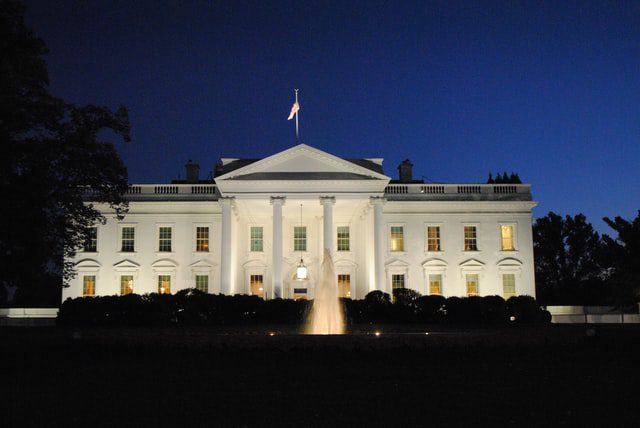On November 3, 2020, the United States of America conducted its Presidential election, which led the Democratic candidate Joe Biden to emerge as the nation’s 46th President. The emergence of Joe Biden as the political leader begs different questions, one of which is how will the new presidency affect healthcare in the United States.
As by U.S. News on November 6, 2020, read “If Joe Biden becomes the next president, he would have clear and ambitious plans for the nation’s health – expanding the Affordable Care Act, empowering public health agencies to deal with Covid-19 and passing a stimulus bill that would support struggling doctor, hospitals and nursing homes”. While trying to analyze what the Biden-led administration would do with the American healthcare system, it is important to note that quite a number of the senate consists of Republicans. This might pose a resistance to whatever effort Biden would be making to promote healthcare in the nation, the article continued.
Healthcare was a major topic of debate between running mates Donald Trump and Joe Biden. In fact, it would make sense to say that many Americans had healthcare in mind while they were voting in the fall of 2020. And as we saw it play out, Joe Biden, who was actively involved in crafting the Affordable Care Act (ACA) under the Obama administration, garnered a higher number of votes than his opponent, Trump.
How The New Presidency Will Be Building On Obamacare
Joe Biden, during the unveiling of his healthcare plan on July 15 2019, had said he would be using more achievable ways to expand healthcare coverage. He termed his plan the “crown jewel” of the Obama tenure; the new Biden presidency would affect healthcare by building on the existing ACA.
First, Americans will be able to retain their private insurance under Joe Biden’s health plan or buy into a plan similar to Medicare. The new presidency would also affect healthcare by implementing changes in the ACA that would aim at increasing accessibility. It would also do away with the 400% income cap on tax credit eligibility.
According to estimates, Biden’s plan would cost about $750bn over the next ten years. Most of that amount would be offset by revoking Trump’s tax cuts for the rich and bringing back the top tax rate to nearly 40 percent. Another part of Biden’s plan is to bring an end to the Hyde Amendment. The Hyde Amendment is an adementment that goes against the federal government offering funds for abortions unless in a case whereby the child is conceived as a result of incest, rape, or the mother’s life is at risk.
Even as Vice President Kamala Harris supports Medicare-for-all, Joe Biden believes one of the most significant things he has achieved with the Obama administration is to pass the Affordable Care Act. He has said a countless number of times that he would strongly oppose anyone from the Republican party that tries opposing the Affordable Care Act.
7 Ways A New President Affects Healthcare
Even before the election results were announced, health experts have been weighing in on how a new presidency would affect the healthcare industry. If Trump had won again, it is possible that not much would change. But with Joe Biden’s win, there is likely going to be change in a number of policies. Let’s see some ways this new Biden presidency could impact healthcare.
- A push for more health coverage. As much as 14 million people in America will likely lose their health insurance as a result of job losses following the Covid-19 pandemic, according to the Commonwealth Fund Analysis. Job losses would create a financial crisis, which would ultimately lead to a major need to expand insurance coverage for the multitude affected. Joe Biden’s campaign did propose to create a public insurance option, just like Medicare. However, a public option would need an act of Congress. The Obama-led administration attempted to include a public option to the ACA. However, it didn’t get enough Senate support. There might be a repetition of this scenario, except the Democrats acquire more seats in the Senate in 2021. The new presidency might also affect healthcare by making moves towards shoring up ACA’s insurance exchanges and then employing a change in eligibility for the subsidies. This is to see to it that a greater number of people get qualified for income-based tax credits.
- Joe Biden might be making a total departure from what is in place with Trump’s administration as Trump had always supported legislation and lawsuits which challenged the major elements of the ACA. In fact, Trump, during his early days in office, had reduced funding channeled towards ACA marketing by as much as 90 percent. But despite the cut, the rate of enrollment in the ACA’s exchanges was not destabilized. Bringing back the individual mandate. Trump’s administration eliminated the individual mandate in 2017 when it signed the GOP tax bill into law. This will likely come back as Biden has under his plan to revert the punishment for not being covered under health insurance.
But how will this be done since the individual mandate doesn’t currently exist as a federal law? According to a Biden campaign officer, Biden’s presidency would affect this part of the healthcare industry by make using of combined executive orders. These aim to reverse the changes while getting the legislation to work on building the Affordable Care Act.
- Opting for value-based care. The push for value-based care rather than the fee-for-service as seen with Medicare seems to be one of the healthcare policies that is void of political agenda. Here is what Dan Mendelson, founder of consulting firm Avalere Health said, “I think the push to value-based care has been very consistent around the Obama administration to the Trump administration.”
Former administrations have been pushing for this transition to value-based care. The new administration would likely continue with the push. However, at the moment, it is still not clear at what speed the new administration would be making its push. It is also noteworthy to add that the Biden administration has included different proposals in its health plan to close up the gaps in health care amongst racial groups. This would mean a reduction in racial disparities. “In 2015, 59% of patients at community health centers were people of color, and one quarter were uninsured. The Biden plan will double the federal investment in these centers, expanding access to high-quality health care for the populations that need it most”, the Biden campaign said.
- Reducing prescription drug pricing. The new presidency will be making efforts to reduce the increasing prices of prescription drugs. In a bid to achieve this, Biden’s administration would have to revoke the laws already in place which prohibit drug price negotiation between Medicare and drug manufacturers. According to a Biden campaign personnel, Biden would also restrict the increase in price for “all brand, biotech and abusively priced generic drugs.” It would also put a standard price in place for drugs without competition. Consumers of prescription drugs will also be able to buy prescription drugs at lower prices; therefore, encouraging competition.
- Changes in healthcare spending rate. With The Affordable Care Act, consumers could spend about 10% of what they earn on the insurance payment. Joe Biden’s healthcare plan would permit users to make purchases into the individual marketplace as well as opt for any healthcare provider they choose. In a bid to increase access to health care, this plan will enable users to spend 8.5% of their income on insurance payments.
- Bringing down the Medicare eligibility age. One of the healthcare changes Biden’s administration aims at is lowering the age at which elderly ones become eligible from the usual 65 to 60 years. This means that there would be an increase in the number of beneficiaries who would move from the commercial plan to the better Medicare and Medicaid plans. Whether a provider would benefit from Medicare service or not would depend on the provider’s payer mix. But, traditionally, Medicare services do pay lower rates than commercial plans.
Republicans are more in support of lowering Medicare spending to help curb government expenses and therefore might not give the desired support for a change in the Medicare eligibility age.
- Undocumented immigrants would be able to buy into the public option. With a new presidency led by Joe Biden, it is expected that undocumented immigrants will now be considered for the public option as Biden’s plan would enable them to buy into the public option. With the Affordable Care Act alone, undocumented immigrants are not permitted to buy into the system. However, Biden’s plan aims at changing that and allowing them to buy into the system.
The New Presidency And Response To COVID-19
Still, on the topic of how the new presidency led by Joe Biden will affect healthcare, it is vital to take a look at the proposed response of the new White House administration to the ravaging novel coronavirus pandemic.
The COVID-19 pandemic is one of the primary reasons healthcare was raised as a top debate in the 2020 Presidential election. Even though the COVID-19 pandemic unfolds beyond expectation,, it has caused a disproportionately large impact on providers.
From the beginning of 2020 to the end of the year, healthcare providers in different parts of the country have been in a struggle trying to balance their usual day-to-day operations with a sudden spike in the number of sick patients being admitted into the hospital with a highly infectious disease which was not known before now.
Trump’s administration received lots of criticism from the healthcare industry, especially in regards to his response to the COVID-19 pandemic. Trump was of the opinion that hospitals and medical personnel were inflating the number of COVID-19 cases to return profits. However, most industry groups pushed back against these claims.
On the other hand, Joe Biden pledged that he would take a different approach to the COVID-19 response. He made this known via a new website on his transition to office. Biden‘s transition team had come up with a 7-points plan to fight and curb the further spread of COVID-19. Here is what the 7-point plan includes:
- access to regular, reliable and free COVID-19 testing
- increases in the supply of personal protective equipment
- evidence-based guidance on how communities could navigate the pandemic
- equitable distribution of treatments and vaccines
- increased protections for older and high-risk Americans
- new defenses for predicting, preventing and mitigating pandemic threats
- nationwide mask mandates
How does the Biden team plan to achieve these? One of the ways is to provide renewable funds for both state and local governments. A 100% reimbursement would go into the COBRA coverage for citizens who might have lost their employer-sponsored coverage during the coronavirus pandemic. $25bn would be mapped out for funding Covid-19 vaccine production and its distribution. There is also the plan to increase more number of drive-through testing points as well as to put in place a Covid-19 Racial and Ethnic Disparities Task Force.
According to PwC’s Health Research Institute, Joe Biden’s coronavirus response plan will be quite beneficial to healthcare providers. They have faced lots of challenges, including a broader gap in racial and ethnic disparities and a shortage of personal protective equipment.
Financial conditions of healthcare providers would also depend much on how fast we deal with the pandemic as well as the coverage situation of patients admitted. Healthcare officials are already noting an increase in the number of uncompensated care as well as bad debt because of the COVID-19.
Biden’s COVID-19 legislation would also include other huge stimulus packages such as extra funding for CARES Acts initiatives.
Conclusion
Most of Trump’s healthcare plans oppose what Biden proposes. This can be seen with the Affordable Care Act, which Obama signed into law in 2010 with Biden by his side. Despite opposition from the Republicans, Biden’s campaign has vowed to not only protect the ACA, which he signed into law 10 years ago but to expand on the law as well. However, it is noteworthy to state again that with a split congress made up of both Republicans and Democrats, it would be hard for the new president-elect to carry out most of his healthcare plans, including COVID-19 legislation. But only time can tell.








